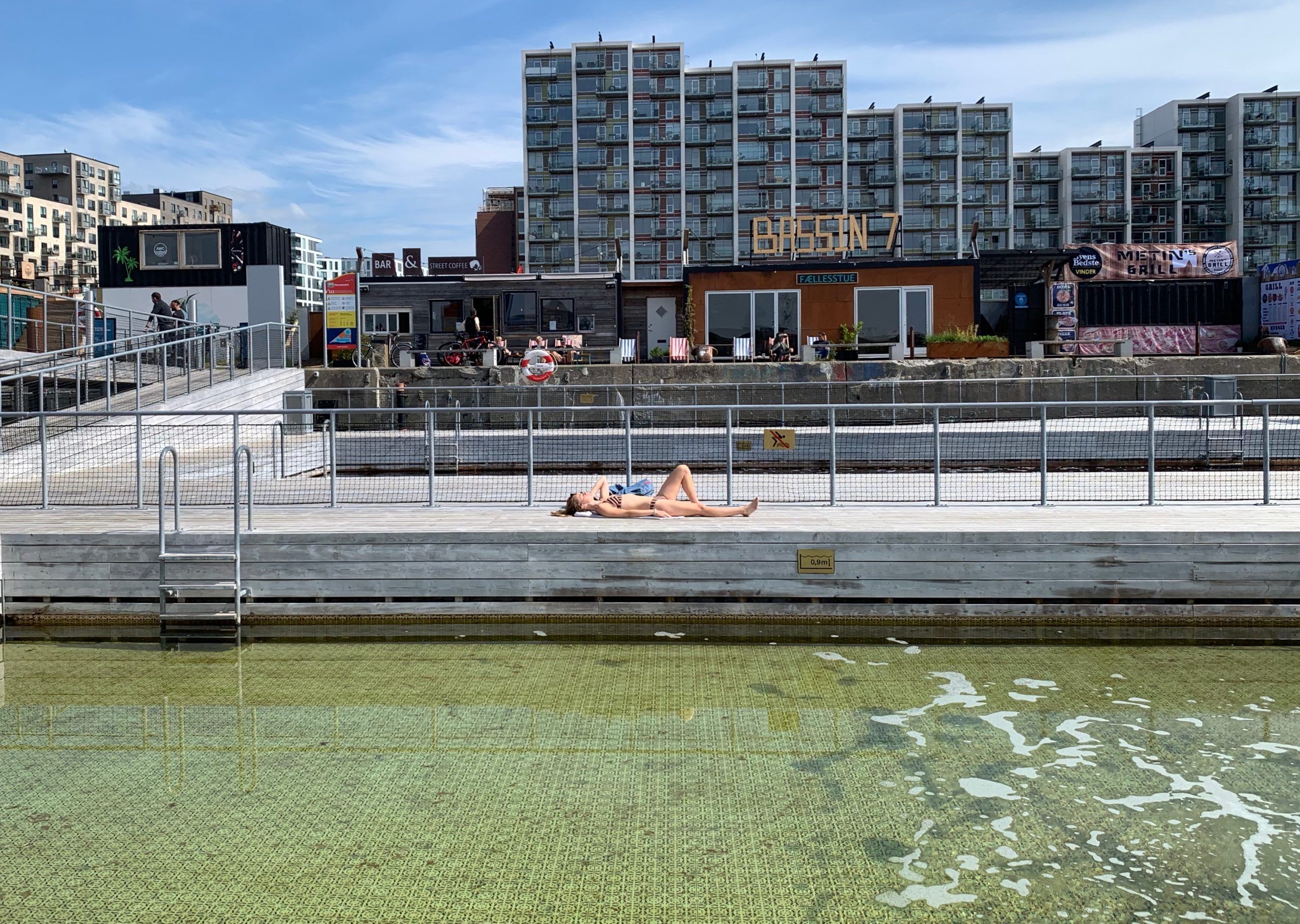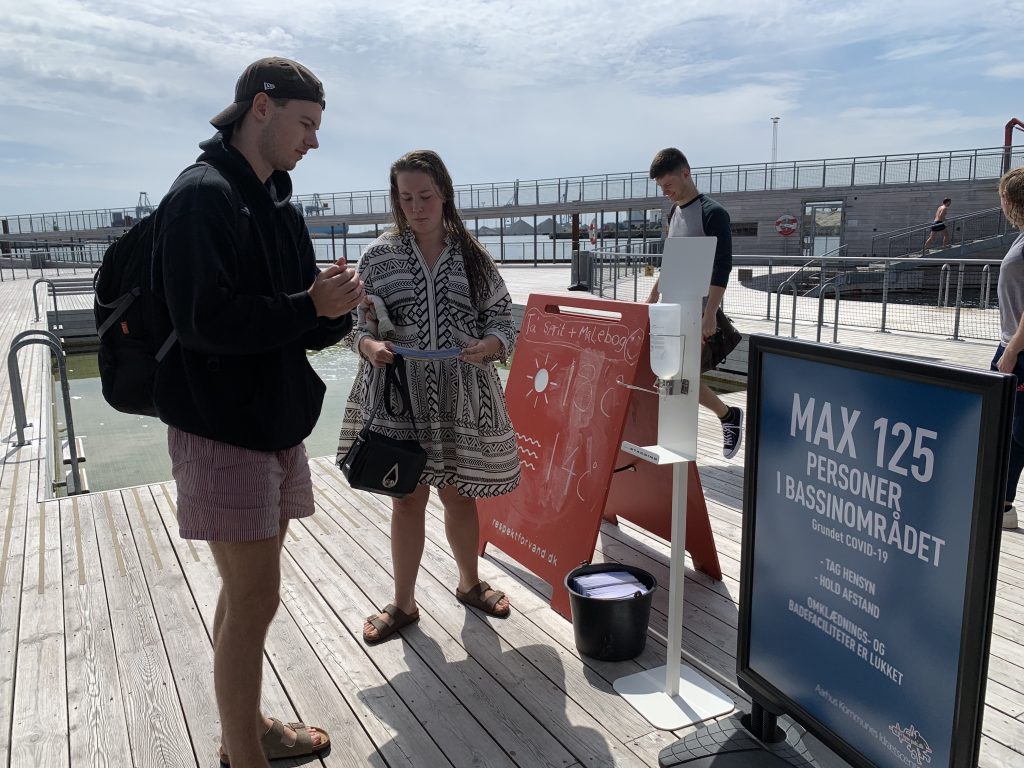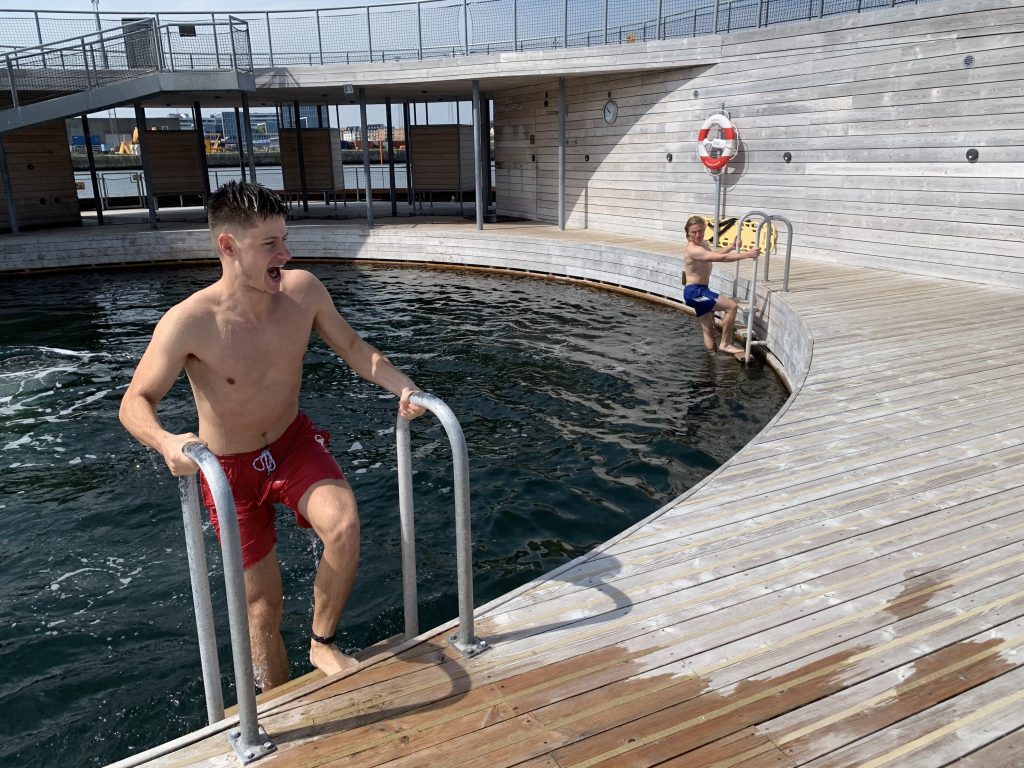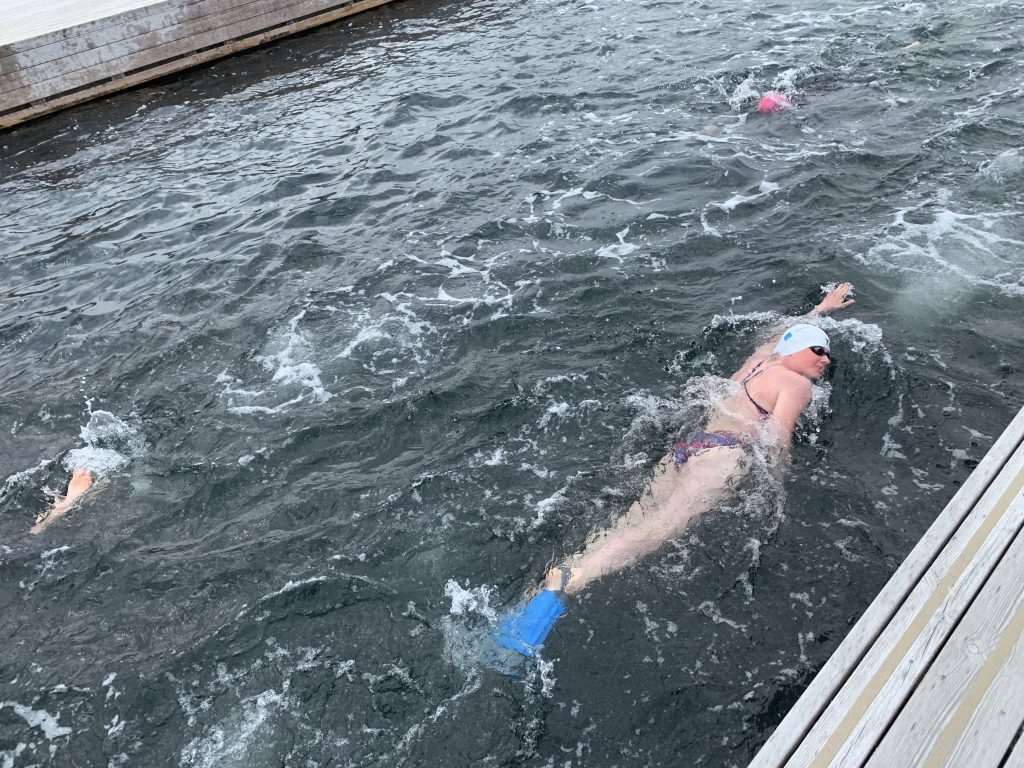With Zoom and determination, Line Petersen has coached her team of swimmers online over the past three months, instructing them on push-ups and running to stay in shape during the coronavirus lockdown.
Now that the government reopened swimming pools last Monday as part of Denmark’s Phase 3 of easing restrictions, Aarhus’ AGF Swimming team is finally able to hit the water in the city’s Havnebadet or Harbour Bath.
“It was pretty hard because they wanted to swim and don’t enjoy the stuff on land so much. It’s nice now. I think everyone is looking forward to swimming here,” Petersen, the head coach of AGF Swimming, told CPH POST on Wednesday.
The team of 30 swimmers did laps in the rectangular 50-metre long pool as onlookers sunbathed in the triangular floating complex jutting out from the shore of the city’s Bassin 7.
Calm and quiet
Havnebadet is not just for professional swimmers but is open to the public, including tourists and residents who can choose from the seawater-filled rectangular pool, a circular diving one and two square children’s pools.
Visitors can also jog or walk on a plank-wood platform that offers a stunning view of Aarhus Ø, the new urban harbor area. Designed by Danish architect Bjarke Ingels’s firm BIG, Havnebadet is an extension of Aarhus’ booming, futuristic architecture scene.
While the place is usually teeming with visitors, only 125 people can now enter the swimming area because of social distancing rules – much lower than the capacity of 350. Still, this limit has not been reached since pools reopened on Monday.
“We expect a lot of people to come here during the summer and we’ve prepared for that as well. But so far, it’s very quiet … maybe because of the virus,” said lifeguard Mads Eriksen.
Students’ summer fun
Every now and then, a group of students breaks the silence with laughter and big splashes in the diving pool. The reopening comes just as exams wrap up in the student-friendly city.
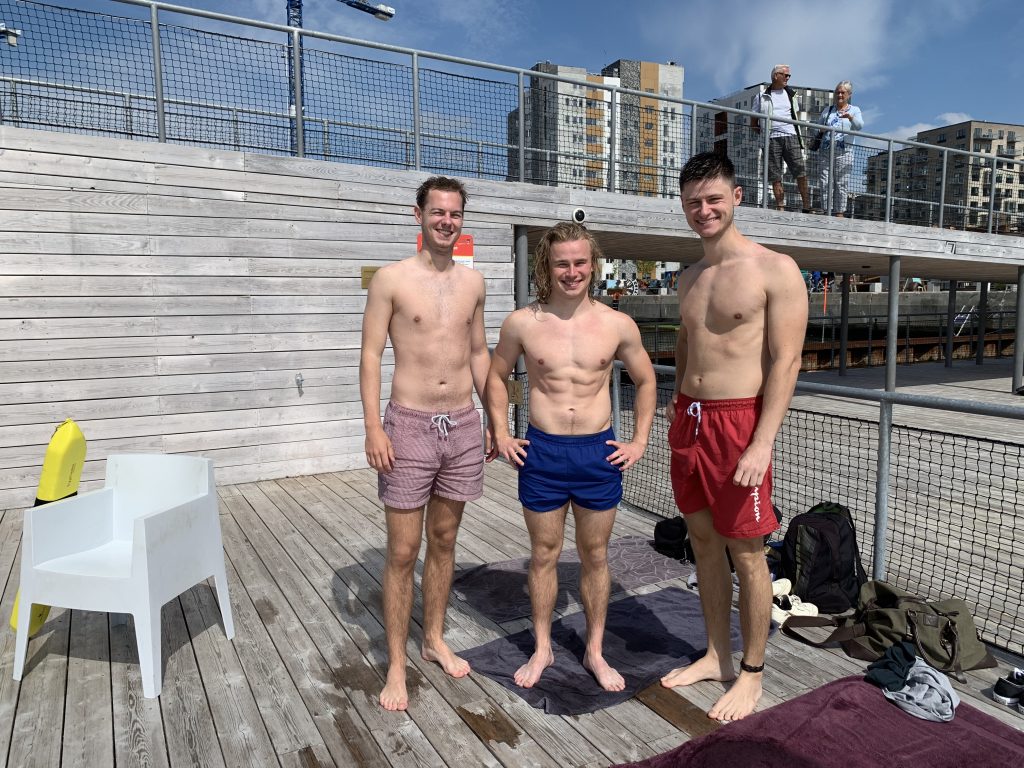
“I haven’t been here for a very long time due to the coronavirus so it’s really nice to be able to come back here and just do other things besides sitting inside your apartment and doing your studies,” said Frederik Kirial of Aarhus University.
“It’s also a place where many people gather, enjoy the sun and the water and just be together, so it’s really nice that it’s open again,” added fellow student Matthias Andersen.
Precautions
In keeping with government guidelines, Havnebadet has hand-sanitisers and signs on coronavirus prevention. It also set a limit of four square metres of space for people lounging in the swimming area.
Despite fears of a second wave of the virus, the swimmers are not worried they will get COVID-19.
“We have been training in groups for a long time so we are pretty much in the same groups training together,” coach Petersen said, adding the AGF team would move to an indoor pool next week.
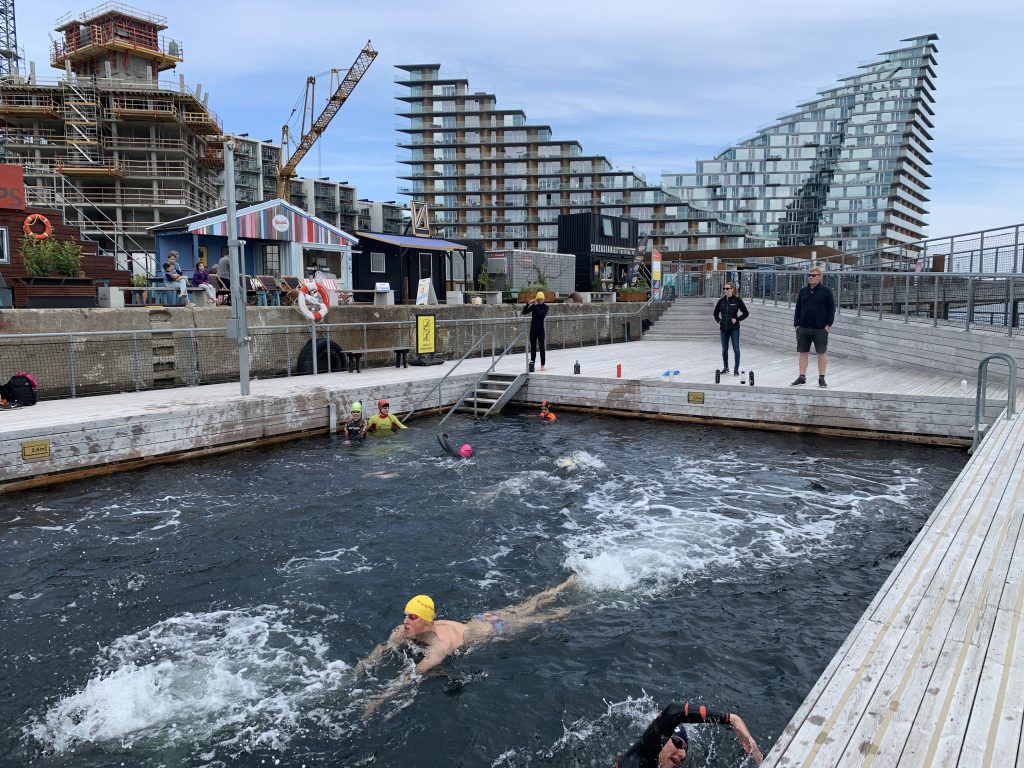
Students said while they continue to take precautions, the virus is no longer their only concern.
“It’s not really something I think of much. It’s just nice to get out of your apartment, I guess,” said Mikkel Egsgård.
“Especially here in Denmark where the cases have been a very low number, I think people are starting to think about other things and enjoying their life,” Andersen said.

